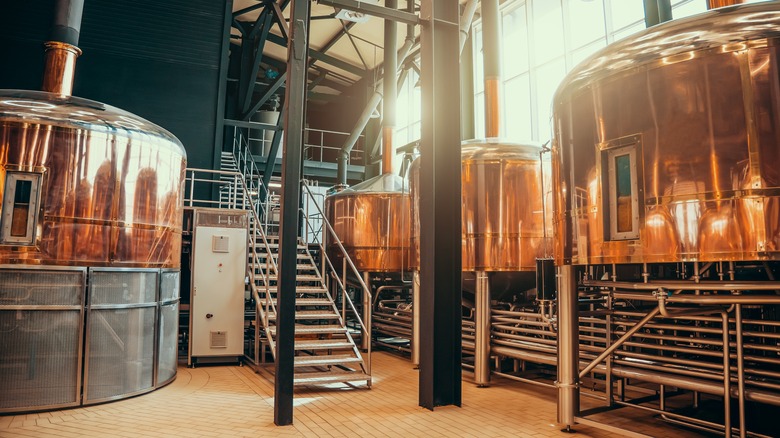Britain Hit With Watered-Down 'Drinkflation' Brews
British beer drinkers have not been getting their money's worth lately because of an industry move dubbed "drinkflation." Popular corporate domestic brewers like Foster's, Bishops Finger, Old Speckled Hen, and Spitfire have been intentionally reducing the amount of alcohol in each can or bottle of beer manufactured without a consequent reduction in price.
A can of Foster's lager, for example, used to have an alcohol per volume (ABV) of 4% — now its ABV is 3.7%. Old Speckled Hen Pale Ale's ABV has been reduced from 5% to 4.80%. While it's true that these figures represent relatively minor changes in alcohol content, they also represent an enormous economic windfall that the breweries have been pocketing. Adding to that, the price of a keg of Foster's lager sold to English pubs rose 15.8% earlier this year.
The reason for these savings is simple: Breweries are taxed a levy on the ABV of every can or bottle manufactured. The reductions in ABV mentioned above have saved Foster's 3 pence a unit and Old Speckled Hen 2 pence. It's been estimated that, if every English brewery cut its ABV by 0.3%, the resultant collective tax savings would be around £250 million.
Drinkflation follows shrinkflation
Now that the unannounced change in alcohol content has been found out, several reasons have been put forward explaining drinkflation. Some breweries claim its efforts are done for the benefit of the public's health and that people are choosing beers with lower alcohol levels. Other industry observers point out the generally skyrocketing cost of living in England post-Brexit, including mortgages and energy bills. Rising expenses like these led to the unprecedented number of English craft brewery closures last year.
This comes after processed food manufacturers have recently engaged in what became known as "shrinkflation," which usually involved reducing the size of its product while keeping the same price. Despite this trend, grocery prices have risen 20% in the past two years. Noticeable changes like this can lead to a negative reputation for brands. Drinkflation neatly avoids this potential pitfall by not altering the packaging — a move that may be expensive for brewing companies to implement anyway. However, it's not enough to put off unwanted negative attention from those who feel they are getting stiffed.

